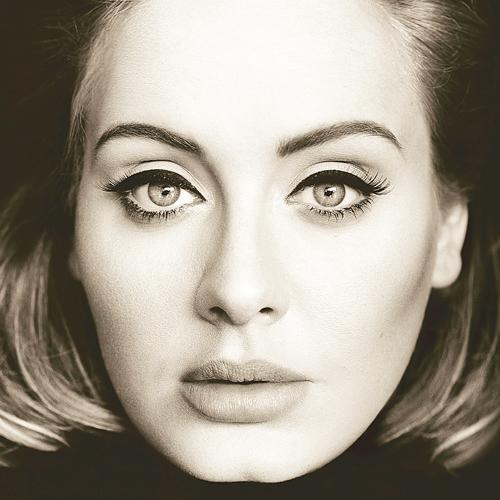
In the world of pop mega-stardom, there exists perhaps no greater challenge than the third studio album. While an artist’s first two albums lay the groundwork for a sound that will — hopefully — attract the masses, the third record is burdened with the task of evolving that sound and firmly staking a claim to it.
The result is a make-or-break effort. Rihanna’s “Good Girl Gone Bad,” Beyoncé’s “I Am… Sasha Fierce,” Katy Perry’s “Prism” and a surfeit of other examples all have in common this statement of the artist as a force to be reckoned with in the fickle pop-culture landscape.
In the case of a burgeoning music legend like Adele, however, the stakes are entirely different. Certain artists have a way of permeating the zeitgeist in a manner that surpasses their brand, and sometimes even their music. Think Fleetwood Mac, Michael Jackson and Whitney Houston at their respective primes, as they reached a status of such ubiquity that people went out in droves to buy their albums not for their sound, but for their voice.
Adele is 2015’s answer to this pop-culture anomaly. Her latest album, “25,” has shattered just about every record of the digital-music era within less than a week of its release in late November. In an age where albums can be downloaded for free online more quickly than they can be purchased in store, and one where artists must sacrifice a respectable revenue to appeal to streaming outlets, Adele has done the impossible again. The success of her previous album, “21,” was similarly unparalleled both critically and commercially, as it went on to sweep six Grammys and sell over 30 million records. All of which is to say that this time around, with the release of “25,” Adele has little to prove and even less to lose.
From a business perspective, “25” does a commendable job of straddling the singer’s two main audiences: the breakup-anthem market and the mainstream one. The acclaim of her previous albums has proven the overlap between these two audiences. Yet from a critical standpoint, the goal of market appeal forces Adele to retread territory without the soul-wrenching potency of her previous effort or the resolve to break new thematic ground that would make this record equally as extraordinary as its predecessor.
Many of the album’s songs hold true to the “makeup record” label ascribed by Adele herself, as she reminisces wistfully on her youth, past relationships and life before she became the Adele that would become the most well-known songstress in soul music of the 21st century. In other places, however, she dares to broach the subject of the present, and it is in these moments of facing the harshness of present reality that Adele’s gift for raw vulnerability shines the most.
The album’s opener and first single release, “Hello,” gives the first indication that Adele, and her penchant for heartache, is back, as she sings, “I’m sorry for breaking your heart / but it clearly doesn’t tear you apart anymore.” What the song lacks in thematic innovation, it more than makes up for in the power of its delivery. This proves true for many of the likewise anguished love songs on the record, as Adele attempts to revisit the heartache that so deeply pervaded “21,” but is now removed from her present life and committed relationship. Unfortunately, heartache is best conveyed in the moment, and the tepid, even impersonal ballads on “25” like “Love in the Dark” and “Million Years Ago” are proof of this.
Adele’s talent for the piercing evocation of pain, sorrow and despondence in the face of grim reality is unrivaled among contemporary singers and she wields it most effectively on “25” when singing about her current life. On standout tracks like “I Miss You” and “Water Under the Bridge,” her voice renders the most acute pain of falling in and out of love with total composure, and she delves into R&B-leaning and up-tempo production previously outside of her sonic repertoire. The organ-heavy “River Lea” captures the brash, assertive side of the singer that is evident far more in her interviews than it is in her music, and makes for another of the album’s most compelling songs.
“All I Ask,” a power ballad co-written with Bruno Mars, brings “25” to its melodramatic climax, as Adele channels Barbra Streisand and the other divas that came before her for a truly transcendent outcome. On “All I Ask,” she sings, “Hold me like I’m more than just a friend / Give me a memory I can use,” processing the moment before a great love comes to an end. Adele might do well to remember that moments such as these make for the best songs, rather than the ones that dwell hopelessly on the past.
Considering her status as one of the world’s most well-revered pop stars, Adele surely manages to go above and beyond expectations with “25.”



















